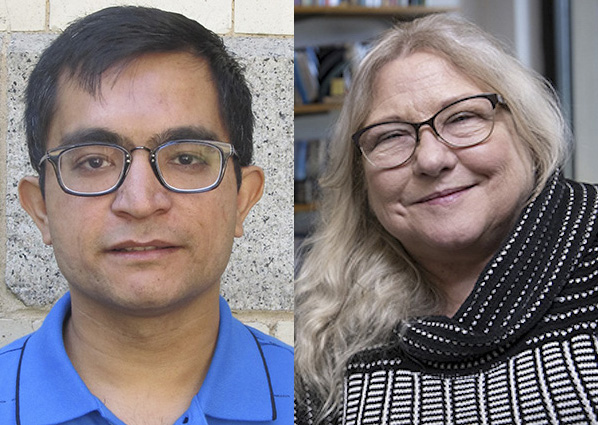CMU Misinformation Researchers Zero in on Climate Change
Michael HenningerWednesday, August 11, 2021Print this page.

Climate change communicators should focus their messaging on conspiracy theories that gain the most traction to combat misinformation more effectively, according to two researchers at Carnegie Mellon University.
Aman Tyagi and Kathleen M. Carley looked at the polarization of climate change beliefs on social media and offered targeted approaches toward reshaping beliefs in their recent paper, "Climate Change Conspiracy Theories on Social Media."
"There's no lack of scientific evidence for climate change, but it's still unfortunately being debated on social media as a partisan issue," Tyagi said. "If people wrongly believe, then, that it isn't man-made, we probably won't see any major policies which successfully curb climate change. That's the motivation behind this work."
Tyagi, who earned his Ph.D. in engineering and public policy, and Carley, a professor in the School of Computer Science's Institute for Software Research, collected a data set of 38 million unique tweets over 100 weeks. Using a state-of-the-art stance-detection method, they sorted the data set into groups of believers and disbelievers in climate change science. Of the seven major conspiracy theories they identified, disbelievers primarily shared two: the chemtrails theory, which claims that the trails following high-altitude jets are chemical agents sprayed for nefarious purposes; and the geoengineering theory, which claims that government experiments cause climate change.
Carley said climate change conspiracy messaging is more cohesive and effective than the fact-based response aimed to dispel those myths.
"On the believers' side, there's no agreement upon consistent messaging and not a lot of coordination among the actors. This paper is a starting point to come together and make a concerted effort to counter this stream of false information," Carley said.
Read more about Tyagi and Carley's work on CMU's news page.
Aaron Aupperlee | 412-268-9068 | aaupperlee@cmu.edu
